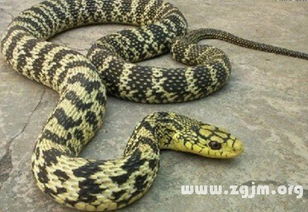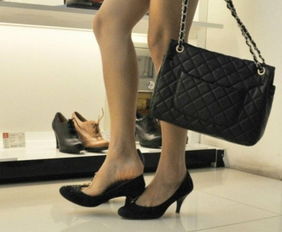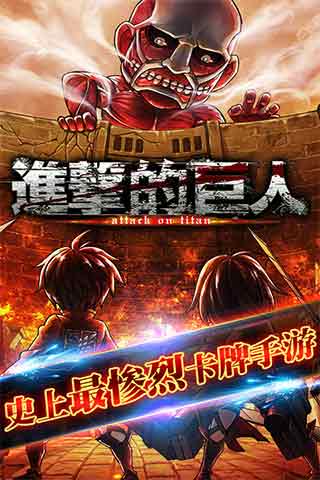provocative的最高级(practical最高级)
- 漫画
- 2023-04-09 03:41:01
- -

六级 高频形容词
六级核心词汇 (一定要把形容词找出来吗?)
1, acquisition n. 获得,添加的物品
2, adolescent a. 青春期的,青年的 n. 青少年
3, adverse a. 不利的,敌对的,相反的,逆的
4, aesthetic a. 美学的,审美的,有美感
5, affiliate vt. 附属,接纳 vi. 有关
6, afflict vt. 使痛苦,折磨
7, aggravate vt. 使恶化,使更加重
8, agitation n.鼓动,煸动;搅动
9, alleviate vt. 减轻,使缓和
10, amends n. 赔偿
11, anonymous a. 匿名的
12, appraisal n. 评价,估价,鉴定
13, articulate a. 发音清晰的,听得懂的
14, ascertain vt.查明,确定,弄清
15, ascribe vt.把…归于
16, assault vt.袭击;殴打 n.攻击
17, assert vt.断言,宣称;维护
18, asset n. 资产,有用的东西
19, assimilate vt. 使同化,吸收,比较
20, attorney n.代理人;辩护律师
21, augment vt.vi.n. 增加,增大
22, authentic a. 真实的,可靠的,可信的
23, avail vt.有益于 n.效用
24, avert vt. 转开,避免,防止
25, baffle vt.使挫折 n.迷惑
26, barren a.贫瘠的;不妊的
27, batch n. 一组,分批,成批,批
28, bizarre a. 奇异的
29, bleak a. 萧瑟的,苍白的,荒凉的
30, blunder vi.犯大错 n.大错
31, blunt a. 钝的,坦率的,麻痹的
32, bonus n. 奖金,红利
33, brace n.支柱 vt.拉紧,撑牢
34, brittle a.脆的;易损坏的
35, capsule n. 胶囊,瓶帽,太空舱
36, casualty n. 伤亡,受害者
37, ceramic a. 陶器的 n. 陶瓷制品
38, cereal n.谷类,五谷,禾谷
39, commentary n. 注释,评论,批评
40, commitment n. 委托,实行,承担义务,赞助
41, commute vt. 交换,兑换, 经常来往
42, compatible a.一致的;兼容制的
43, competence n. 胜任,资格,能力
44, compile vt.编辑,编制,搜集
45, compulsory a.强迫的,义务的
46, concede vt. 承认,退让 vi. 让步
47, conceive vt.设想,以为;怀孕
48, concession n.让步,迁就
49, concise a. 简洁的,简明的
50, confer vt. 赠予,协议 vi. 协商
51, configuration n. 结构,配置,形态
52, conform vt.使遵守 vi.一致
53, confusion n.混乱;骚乱;混淆
54, consecutive a. 连续的,联贯的,始终一贯的
55, consensus n. 一致
56, conserve vt. 保存,保全 n. 蜜饯,果酱
57, conspicuous a. 显著的,显眼的,出众的
58, constituent a.形成的 n.选民
59, constrain vt. 强迫,勉强,驱使
60, consultant n. 顾问,商议者
61, contaminate vt. 弄脏,毒害,传染
62, contemplate vt. 注视,沉思,打算 vi. 冥思苦想
63, contempt n.轻蔑;藐视
64, contend vi.竞争 vt.坚决主张
65, contradict vt.反驳,否认
66, contrive vt.vi. 发明,设计,图谋
67, controversial a. 争论的,论争的,被议论的
68, controversy n.争论,辩论,争吵
69, converge vi. 聚合,集中于一点
70, convict n. 囚犯,罪犯 vt. 宣告有罪
71, cordial a.真诚的,诚恳的
72, corps n. 军团,队,团,兵种
73, corrode vt.vi 腐蚀,侵蚀,破坏
74, corrupt vt.贿赂 a.腐败的
75, costume n. 装束,服装
76, courtesy n.礼貌,谦恭,请安
77, cripple n.跛子;残废的人
78, criterion n.标准,准则,尺度
79, crucial a. 决定性的,重要的,严厉的
80, cue n. 开端,线索,发辫,长队
81, culminate vi.vi. 到绝顶,达于极点,达到高潮
82, cumulative a. 累积的
83, curb n. 抑制,勒马绳 vt. 抑制,束缚
84, curt a. 简略的,简短的,生硬的
85, cynical a. 愤世嫉俗的,讽刺的,冷嘲的
86, deficit n. 赤字,不足额
87, degenerate a. 堕落的 vi.vt使变质,使退化 .
88, deliberate a.深思熟虑的;审慎的
89, denote vt.指示,意味着
90, denounce vt.谴责,声讨;告发
91, depict vt. 描述,描写
92, designate vt.指出,指示;指定
93, despatch vt.vi.n. 派遣
94, despise vt.鄙视,蔑视
95, deteriorate vt.vi. (使)恶化
96, diffuse vt.vi. 散播,传播 a. 散开的,弥漫的
97, dilemma n. 困境,进退两难的局面
98, dilute vt. 冲淡,稀释 a. 淡的,稀释的
99, discern vt.看出,辨出;辨别
100, discrepancy n. 相差,差异,差别
101, discrete a. 不连续的, 离散的
102, disguise vi.隐瞒,掩埋 n.假装
103, dismay n.惊慌,沮丧,灰心
104, dispatch vt.派遣;调度 n.急件
105, disperse vt.(使)分散;驱散
106, disposition n. 性情,处置,处理,布置
107, disrupt a. 分裂的,分散的 vt. 使分裂,使瓦解
108, dissipate vt.驱散;浪费vi.消散
109, distil v. 蒸馏, 提取....的精华
110, disturbance n.动乱;干扰;侵犯
111, divine a.神的;敬神的
112, drastic a.激烈的;严厉的
113, dubious a. 可疑的,不确定的
114, dwell n.居住 vi.凝思,细想
115, eccentric n. 怪人,偏心圆 a. 古怪的,不同圆心的
116, edible a. 可食用的 n. 食品,食物
117, ego n. 自我
118, elicit vt. 引出,抽出,引起
119, elite n. 精华,精锐,中坚分子
120, eloquent a. 雄辩的,有口才的,动人的
121, embark vi. 乘船,着手,从事,上飞机
122, empirical a.经验主义的
123, endow vt.资助;赋予,授予
124, enhance vt.提高,增加;夸张
125, ensue vt. 追求 vi. 跟着发生,继起
126, entail vt. 使必需,使承担
127, entity n. 实体,实存物,存在
128, entrepreneur n. 企业家,主办人
129, envisage vt. 面对,正视,想象
130, epoch n.(新)时代;历元
131, equilibrium n.平衡,均衡;均衡论
132, erosion n.腐蚀,侵蚀;糜烂
133, erroneous a. 错误的,不正确的
134, escort n. vt.护卫,护送
135, essence n.本质,本体;精华
136, esthetic a. 审美的
137, ethics n. 道德规范
138, ethnic a.民族特有的
139, evoke vt. 唤起,引起
140, exemplify vt.举例证明(解释)
141, exempt a. 免除的 vt. 使免除,豁免
142, exile vt.流放 n.被流放者
143, exotic a. 异国的,外来的 n. 外来物,舶来品
144, expertise n. 专家的意见,专门技术
145, expire vi.满期,到期;断气
146, explicit a.明晰的;直率的
147, exposition n.说明,解释;陈列
148, exquisite a. 精致的,细腻的,敏锐的
149, extinct a.绝种的;熄灭了的
150, extinguish vt.熄灭,扑灭;消灭
151, extravagant a.奢侈的;过度的
152, fabricate vt.制作,组合;捏造
153, facet n. 小平面,方面,刻面
154, facilitate vt.使容易;助长
155, feeble a.虚弱的;微弱的
156, flank n.肋,肋腹;侧面
157, flap vt. n.拍打 vi.拍动
158, fling vi. vt.(用力)扔,抛
159, fluctuate vi.波动 vt.使波动
160, flutter vi.(鸟)振翼;飘动
161, foam n.泡沫;泡沫塑料
162, foil n. 箔,金属薄片 vt. 贴箔于, 衬托
163, formidable a.可怕的;难对付的
164, formulate vt.用公式表示
165, fort n.要塞,堡垒
166, fossil n.化石 a.化石的
167, foster vt.养育,抚养;培养
168, foul a.肮脏的;丑恶的
169, fracture n.破裂;裂痕 vi.破裂
170, fraud n. 骗子,欺骗,欺诈,诡计
171, fringe n.穗,毛边;边缘
172, frustrate vt.挫败;使无效
173, galaxy n. 银河,星系,一群显赫的人物
174, gaol n. 监禁,监狱 vt. 监禁
175, garment n.衣服;服装,衣着
176, gasp vi.气喘,喘息
177, gear n.齿轮,传动装置
178, glide vi.滑动;消逝 n.滑行
179, gloomy a.黑暗的;令人沮丧的
180, gorgeous a.绚丽的;极好的
181, gossip n.闲谈;碎嘴子;漫笔
182, graze vi.喂草;放牧(牲畜)
183, grease n.动物脂,脂肪
184, grief n.悲哀,悲痛,悲伤
185, grieve vt.使悲痛 vi.悲痛
186, grim a.冷酷无情的,严厉的
187, grope vi.(暗中)摸索,探索
188, hamper vt.妨碍,阻碍,牵制
189, hatch vt.舱盖,舱口;短门
190, haul vt.拖曳;拖运
191, haunt vt.常去 vi.经常出没
192, heal vt.治愈;使和解
193, heave vt.(用力地)举起;抛
194, heir n.后嗣,继承人
195, heritage n. 遗产,继承物,传统
196, hierarchy n.等级制度,统治集团
197, hinder a. 后面的 vt.vi. 阻碍,打扰
198, hinge n.合页,折叶,铰链
199, hitherto ad.迄今,到目前为止
200, hoist vt.升起 vi.扯起来
201, homogeneous a.同类的;均匀的
202, hose n.长筒袜;软管
203, hover vi.徘徊;傍徨;翱翔
204, humidity n.湿气;湿度
205, hurl vt.猛投 vi.猛冲
206, hypothesis n.假设;前提
207, hysterical a. 歇斯底里的,异常兴奋的
208, ideology n. 意识形态,思想体系
209, ignite vt.引燃 vi.着火
210, illuminate vt.照明,照亮;阐明
211, illusion n.幻想;错觉;假象
212, imaginative a. 想象的,虚构的
213, imitation n.仿制品,伪制物
214, immerse vt.沉浸;给…施洗礼
215, immune a. 免疫的,免除的,不受影响的
216, impair vt. 损害,减少,削弱
217, impart vt.给予,传递;告诉
218, imperative n. 命令, a.命令式的,急需的,强制的
219, imperial a. 帝王的,至尊的 n. 特等品
220, impetus n. 动力,推动力,激励
221, implement n.工具 vt. 实现,使生效,执行
222, implicit a. 暗示的,盲从的,绝对的,固有的
223, inaugurate vt.开始;使就职
224, incentive n. 动机 a. 激励的
225, incidentally ad.附带地;顺便提及
226, inclusive a.包围住的;包括的
227, incredible a.难以置信的,惊人的
228, incur vt. 招致,蒙受,遭遇
229, indefinite a.不明确的;不定的
230, indicative a.指示的;陈述的
231, indignant a.愤慨的,义愤的
232, indignation n.愤怒,愤慨,义愤
233, induce vt.劝诱;引起;感应
234, indulge vt.放纵(感情)vi.纵情
235, inertia n.惯性,惯量;无力
236, inflation n.通货膨胀,物价飞涨
237, inflict vt. 施以,加害,使承受
238, ingenious a.机灵的;精巧制成的
239, ingredient n.配料,成分
240, inhibit vt. 禁止,抑制
241, innovation n.创新,改革,新设施
242, insane a. 患精神病的,不理智的
243, installment n.分期付款
244, instantaneous a.瞬间的,即刻的
245, insulate vt.使绝缘,使绝热
246, intact a.原封不动的,完整的
247, integral a.组成的;整的
248, integrate vt.使结合,使并入
249, integrity n.诚实,正直
250, intelligible a. 可理解的,易理解的,明了的
251, intensify vt.vi. 加强,强化
252, intent a.目不转睛的,热切的
253, interim a. 中间的,暂时的,间歇的,n.过渡时期
254, intermittent a. 间歇的,断断续续的
255, intersection n. 交集,十字路口,交叉点
256, intimidate vt. 威胁,恐吓,胁迫
257, intricate a. 复杂的,错综的,缠结的,难懂的
258, intrigue n. 阴谋 vi. 密谋,耍诡计 vt. 激起兴趣
259, intrinsic a. 本质的,原有的,真正的
260, intuition n. 直觉,直觉的知识
261, invalid n.病人 a.有病的,无效的
262, invaluable a. 无价的,价值无法衡量的
263, invariably ad.不变地,永恒地
264, inventory n. 详细目录,存货清单
265, invert vt. 使反转,使颠倒,使转化
266, irony n. 反讽,讽剌,讽剌之事
267, irrespective a.不考虑的,不顾的
268, irrigation n.灌溉;冲洗法
269, irritate vt.激怒;引起不愉快
270, ivory n.象牙;牙质;乳白色
271, jail n.监狱 vi.监禁
272, jeopardize vt. 危害,使受危困,使陷危地
273, jerk vt.猛地一拉 vi.急拉
274, journalist n.记者,新闻工作者
275, junction n.连接;接头;中继线
276, jury n.陪审团;评奖团
277, justification n. 辩护,证明是正当的,释罪
278, kidney n.肾,腰子;性格
279, kit n.成套工具;用具包
280, knit vt.把…编结 vi.编织
281, knob n.门把,拉手;旋纽
282, lamb n.羔羊,小羊;羔羊肉
283, lame a.跛的;瘸的,残废的
284, landscape n.风景,景色,景致
285, latent a.存在但看不见的
286, latitude n.纬度;黄纬
287, layman n. 俗人,门外汉,凡人
288, leaflet n.传单,活页;广告
289, lease n.租约,契约,租契
290, legend n.传说,传奇
291, legislation n.立法;法规
292, legitimate a. 合法的,正当的 vt. 使合法
293, liability n.责任;倾向;债务
294, lick vt.舔;舔吃
295, likelihood n.可能(性)
296, limp vi.蹒跚,跛行 n.跛行
297, linear a.线的;长度的
298, liner n.班船,班机
299, linger vi.逗留,徘徊;拖延
300, literacy n. 读写能力,识字
301, literal a.文字(上)的;字面的
302, litter n.废物,杂乱 vi.乱扔
303, lobby n.前厅,(剧院的)门廊
304, locality n.位置,地点,发生地
305, locomotive a.运动的;机动
306, lofty a.高耸的;高尚的
307, longitude n.经线,经度
308, lounge n.(旅馆等的)休息室
309, lubricate vt.使润滑vi.加润滑油
310, luminous a.发光的;光明的
311, lunar a.月亮的
312, magnify vt.放大,扩大
313, magnitude n.大小;重大;星等
314, majesty n.威严,尊严;陛下
315, mall n.大型购物中心
316, manifest vt.表明 a.明白的
317, manipulate vt.操作;控制,手持
318, manoeuvre n.vi. 调遣,演习 vt. 调动,操纵
319, manuscript n.手稿,底稿,原稿
320, marble n.大理石
321, marginal a.记在页边的;边缘的
322, marsh n.沼泽地,湿地
323, marshal n.元帅;陆军元帅
324, masculine a.男性的;强壮的
325, massive a.粗大的;大而重的
326, masterpiece n.杰作,名著
327, meadow n.草地,牧草地
328, mechanism n.机械装置;机制
329, medal n.奖章,勋章,纪念章
330, media n. 媒体
331, mediate a. 居间的,间接的vt. 斡旋,调停
332, medieval a. 中古的,中世纪的
333, Mediterranean n.地中海 a.地中海的
334, melody n.旋律,曲调;歌曲
335, membership n.成员资格;会员人数
336, menace vt.vi.n.(进行)威胁
337, merge vt. 使合并,使并为一体
338, mess vt.弄脏,弄乱,搞糟
339, messenger n.送信者,信使
340, metallic a.金属的 n.金属粒子
341, metropolitan a.主要都市的n.大主教
342, midst n.中部,中间,当中
343, migrate vi.迁移,移居
344, militant a. 好战的
345, mingle vt.使混合vi.混合起来
346, miniature n.缩影 a.缩小的
347, minimal a. 最小的,极微的,最小限度的
348, minimize vt.使减到最小
349, misery n.痛苦,悲惨,不幸
350, misfortune n.不幸,灾祸,灾难
351, missionary n.传教士
352, mobilize vt.动员 vi.动员起来
353, mock n.嘲弄 vt.嘲弄,挖苦
354, momentum n. 动力,要素
355, monopoly n.垄断,独占,专利
356, monster n.怪物;畸形的动植物
357, morality n.道德,美德,品行
358, mortal a.终有一死的;致死的
359, mortgage n.抵押 vt.抵押
360, motel n.汽车游客旅馆
361, mourn vi.哀痛,哀悼
362, muddy a.多泥的,泥泞的
363, multitude n.大批,大群;大量
364, municipal a.市的,市立的
365, murmur vi. 低语,低声而言 n.低语
366, muscular a.肌肉发达的,强健的
367, mutter vi.轻声低语;抱怨
368, myth n. 神话,虚构的事,虚构的人
369, naive a. 天真的,纯真的,朴素的
370, narrative n. 叙述,故事 a. 叙述的,叙事的
371, nasty a.龌龊的;淫猥的
372, necessitate vt. 迫使,使成为必需,需要
373, negligible a.微不足道的
374, negotiate vi.谈判,交涉,议定
375, nickel n.镍;镍币
376, nightmare n.恶梦;经常的恐惧
377, nominal a. 名义上的,名字的 n. 名词性词
378, nominate vt.提名,推荐;任命
379, nonetheless adv. 尽管如此,然而
380, norm n.标准,规范;平均数
381, notable n.值得注意的;著名的
382, notation n. 记号法,表示法,注释
383, notify vt.通知,告知;报告
384, notion n.概念,意念;看法
385, notorious a.臭名昭著的
386, notwithstanding prep.尽管,虽然
387, nourish vt.提供养分,养育
388, novelty n.新颖;新奇的事物
389, numerical a.数字的,数值的
390, nutrition n. 营养,营养学
391, oath n.誓言,誓约,宣誓
392, obedient n.服从的,顺从的
393, obligation n.义务,职责,责任
394, obscene a. 淫秽的,猥亵的
395, obscure a.阴暗的;蒙昧的
396, odor n. 气味,名声,味
397, offence n.犯罪,犯规;冒犯
398, offensive a.冒犯的;进攻的
399, offset n.分支,抵销 vt.抵销
400, offspring n.儿女,子孙,后代
401, opaque a.不透明的;不传导的
402, oppress vt.压迫,压制;压抑
403, optimism n.乐观,乐观主义
404, optimum n.最适条件,最适度
405, option n.选择,取舍
406, orient n.东方;亚洲,远东
407, oriental a.东方的;东方国家的
408, orientation n.向东;定位;方向
409, originate vi.发源 vt.首创
410, ornament n.装饰物 vt.装修
411, orthodox a. 正统的,传统的,惯常的
412, outbreak n.(战争、愤怒等)爆发
413, oval a.卵形的 n.卵形
414, overflow vt.从…中溢出
415, overhear vt.偶然听到;偷听
416, overlap vt.与…交搭 vi.重迭
417, overt a. 明显的,公然的
418, overthrow vt.推翻 n.推翻,瓦解
419, overwhelm vt.压倒,使不知所措
420, oxide n.氧化物
421, pamphlet n.小册子
422, panic n.恐慌,惊慌
423, paradise n.伊甸乐园;天堂
424, paradox n. 似非而是的论点,自相矛盾的话
425, paralyze vt. 使瘫痪,使麻痹
426, parameter n.参(变)数;参量
427, participant n.参加者 a.有份的
428, partition n.分开,分割;融墙
429, pastime n.消遣,娱乐
430, pasture n.牧场;牲畜饲养
431, patent a.专利的 n.专利
432, pathetic a.哀婉动人的;可怜的
433, patriotic a.爱国的
434, patrol n.巡逻 n.巡逻,巡查
435, pave vt.铺,筑(路等)
436, pearl n.珍珠;珍珠母
437, pedal n.踏脚,踏板,脚蹬
438, pedestrian n.行人,步行者
439, peel vt.剥(皮),削(皮)
440, peer vi.凝视;隐约出现
441, penalty n.处罚,刑罚;罚款
442, pendulum n.(钟等的)摆
443, pension n.抚恤金,年金
444, perception n.感觉;概念;理解力
445, perfection n.尽善尽美;无比精确
446, perfume n.香味,芳香;香料
447, periodic n.周期的;一定时期的
448, periodical n.期刊,杂志
449, perish vi.死亡,夭折;枯萎
450, permeate vt. 弥漫,渗透,充满 vi. 透入
451, permissible a. 可允许的
452, perpetual a.永久的;四季开花的
453, perplex vt.迷惑,困惑,难住
454, persistent a. 固执的,坚持的,持续的
455, pest n.害虫;害人虫
456, petition n.请愿 vt.向…请愿
457, petty a.细小的;器量小的
458, physiological a. 生理学的,生理学上的
459, plague n.瘟疫,鼠疫;天灾
460, plaster n.灰泥;硬膏;熟石膏
461, plateau n.高原;平稳时期
462, plausible a. 似乎真实的,似乎合理的
463, plea n.请愿,请求,恳求
464, plea n.请愿,请求,恳求
465, plead vt.为…辩护 vi.抗辩
466, pledge n.誓言 vt.使发誓
467, poke vt.戳,刺;伸(头等)
468, polar a.南(北)极的;极性的
469, poll n.投票 vi.投票
470, ponder vt.考虑 vi.沉思
471, pope n.(罗马天主教的)教皇
472, porch n.门廊,入口处
473, pore n.毛孔,气孔,细孔
474, portray vt. 描绘,描写,描写...的肖像,
475, pose vi.假装,摆姿势 n.姿势
476, poster n. 海报,招贴,脚夫
477, postulate vt.要求,假定,假设
478, practicable a.能实行的;适用的
479, prayer n.祈祷,祈求
480, preach vt.说教,布道;鼓吹
481, precede vt.先于… vi.领先
482, precipitate a.突如其来的 vt.使突然发生 n. 沉淀物
483, preclude vt. 预先排除,预防,阻止,妨碍
484, predecessor n.前辈,前任者
485, predominant a.占优势的;主要的
486, pregnant a.怀孕的;意义深长的
487, premature a. 早熟的,过早的 n. 早产儿
488, premise n. 前提,假设,房产
489, premium n. 额外费用,奖金,奖赏,保险费
490, prescription n.药方,处方的药
491, presentation n.介绍;赠送;呈现
492, preside vi.主持;主奏
493, prestige n.威望,威信,声望
494, presumably ad.推测起来,大概
495, presume vt.假定,假设,揣测
496, pretext n. 借口,托辞
497, prevalent a.流行的;盛行的
498, prey vi.猎物 vi.捕获
499, priest n.教士,牧师,神父
500, priority n.先,前;优先,重点
501, privacy n. 隐私,隐居,秘密
502, probe n.探针 vt.用探针探查
503, proceeding n.程序,行动,事项
504, proclaim vt.宣告,宣布;表明
505, productive a.生产的;出产…的
506, productivity n.生产率;多产
507, proficiency n.熟练,精通
508, profile n. 侧面,轮廓,人物素描,传略
509, profitable a.有利的;有益的
510, profound a.深刻的;渊博的
511, prolong vt.延长,拉长,拖延
512, promising a.有希望的;有前途的
513, prone a. 俯伏的,易于...的
514, propaganda n.宣传;宣传机构
515, propagate vt.繁殖;传播,普及
516, propel vt.推进,推动
517, prophet n.预言家,先知
518, proposition n.命题,主题;提议
519, prose n.散文
520, prospective a. 有希望的,预期的,将来的
521, prototype n.原型;典型,范例
522, provocative a. 挑衅的,刺激的,挑逗的
523, provoke vt. 激怒,惹起,驱使
524, proximity n. 接近,亲近
525, publicity n. 公开,名声,宣传
526, purify vt.提纯,精炼(金属)
527, purity n.纯净;纯洁;纯度
528, pursuit n.追赶;追求;事务
529, qualification n.资格;限制条件
530, qualitative a.质的;定性的
531, quantify vt.确定…的数量
532, quantitative a.量的;定量的
533, quart n.夸脱(=2品脱)
534, quarterly a.季度的 ad.季度地
535, quartz n.石英
536, queer a.奇怪的,古怪的
537, quench vt.熄灭,扑灭;压制
538, quest vt.寻找 vi.追求
539, questionnaire n.调查表,征求意见表
540, quiver vi.(轻微地)颤动
541, racket n.球拍
542, radiant a.绚丽的;容光焕发的
543, radiate vi.发射光线;辐射
544, radical a.基本的;激进的
545, rage n.(一阵)狂怒,盛怒
546, raid n.袭击;突然搜查
547, rally n.vt.vi.(重新)集合
548, random n.随机 a.随机的
549, rating n. 等级,评定结果,收视(听)率
550, readily ad.乐意地;无困难地
551, realistic a.现实的;现实主义的
552, reap vt.vi.收割,收获
553, rebellion n.造反;叛乱;反抗
554, recession n. (经济)衰退,不景气
555, recipe n.菜谱,烹饪法;处方
556, recipient n. 接受者,接收者
557, reciprocal a.相互的;互利的
558, recite vt.vi.背诵,朗诵
559, reckless a.粗心的
英语翻译 anything less than
1、先看句子的主干部分:nothing gets people talking like the suggestion that ...【没什么东西像这个suggestion一样会引起人们谈论了。】
2、that之后的从句是suggestion的内容: child rearing is anything less than a completely fulfilling,life-enriching experience.【养孩子是某种低于后面那个级别的事情,后面那个级别指的是“全身心投入、让生活更充实的经历”】(注意,这里用anything是由于整句话是个nothing开头的否定句,在还原这个同位语从句的时候,应该指导它的本来面貌是...something less than...)
3、把主要部分和次要部分加在一起,再调整一下句式,可以译为:
【如果听到有人说,养孩子不是一件占据全部精力、彻底充实生活的经历,人们一定会忍不住说上一大通。】
(当然这个译本不一定最好,但这句话的基本意思是这样的:就是说人们普遍认为养孩子是个投入多、充实度高的事情,但凡有人认为养孩子的强度没到那个程度,就会激发人们的激烈讨论)

求一片关于警察的英文文章(书籍,期刊,有作者)
CHICAGO EXAMINED: ANATOMY OF A "POLICE RIOT'
Friday, Dec. 06, 1968 Time magazine
IN Chicago, during the Democratic National Convention last August, two American rights collided headon: the acknowledged right to dissent within certain limits, and the equally valid right of a city to protect its citizens and its property. But what limits? And what kind of protection? Americans and the rest of the world were at first appalled by the way the police did battle with the demonstrators. But, almost immediately, pollsters reported that a majority of Americans believed that, given the provocation and the tense situation they encountered, Chicago's police had struck a notable blow for law and order. Months after the event, the conflict remains significant and symbolic of the deep divisions, the warring judgments in American society.
In Washington this week, a thick, well-documented report titled Rights in Conflict was issued by a Chicago study team under the direction of Daniel Walker, vice president and general counsel of Montgomery Ward. He had been assigned by the President's Commission on the Causes and Prevention of Violence, headed by Milton Eisenhower, to determine what happened in Chicago and why and how. In preparing the report over a period of 53 days, Walker and his staff of 212 relied largely on 3,437 statements from eyewitnesses and participants, some obtained by staffers, others taken by the FBI and such agencies as the U.S. Attorney's office in Chicago. The staff also viewed some 180 hours of relevant film taken by television networks, local TV stations, police and citizens.
The staff interviewers encountered some eloquence and much searing memory. During most of the traumatic week of the convention, a Los Angeles police inspector who was present as an observer thought that "the restraint of the police, both as individual members and as an organization, was beyond reason." But of the Wednesday night battle in front of the Conrad Hilton Hotel, the same official said: "There is no question but that many officers acted without restraint and exerted force beyond that necessary under the circumstances." As his policemen went out of control that night, the deputy superintendent in charge had to pull berserk officers off battered and bruised demonstrators, shouting at them: "Stop, damn it, stop! For Christ's sake, stop it!" The report confirms the earlier impression that the Chicago police force—in Mayor Daley's celebrated euphemism—"overreacted." But it also stresses the provocations they suffered and records some examples of police restraint.
The report also places the start of the confrontation considerably earlier than the convention week—there had been riots in Chicago's black ghettos in 1966 and again in April 1968, after the murder of Martin Luther King. Mayor Daley's own riot-study committee (Daniel Walker was No. 2 man) cited the restraint practiced by the police as a major factor in keeping the April riots from becoming even "more violent and widespread." But after April 1968, Daley criticized his police for their restraint and urged them to shoot to kill arsonists and maim looters. Says the report: "The effect on the police became apparent several weeks later when they attacked demonstrators, bystanders and media representatives at a civic-center peace march."
Tale of Two Parks. The first violence took place on a Sunday night in and around Lincoln Park, which had been chosen as yippie headquarters. Like all Chicago parks, Lincoln had an 11 p.m. curfew, which had been on the books for decades but was seldom enforced.
Newsmen and other observers could not understand why Lincoln Park was swept clear each night at curfew and why Grant Park, opposite the Loop, was not. The report solves this mystery and, like so much in the confrontations, the difference came down to a matter of personality. The deputy chief of police in charge of Lincoln Park said that if the curfew was not enforced, yippies and others would take it as a sign of weakness.
The deputy superintendent of police in charge of Grant Park took the opposite view. He said that the decision not to clear Grant Park was his own and a matter of judgment. When no citizens complained, he felt, it was sometimes better to ignore a technical law violation than to create a major problem. Grant Park was to have its share of disruptions, but they did not happen on schedule every night, as they did in Lincoln Park.
Moreover, as Lincoln Park was swept by lines of police each night, the intruders were driven into the streets of the Near North Side and Old Town, Chicago's version of Greenwich Village. The police then found it necessary to reassemble and drive the demonstrators—by now intermingled with passers-by and curious spectators—off the streets. A clergyman complained that "by pushing these young people from the park, the police create a larger law-enforcement problem than they have if they let the youths remain in the park."
Diabolical Threats. The report makes clear that Mayor Richard Daley and his police and military aides appeared to accept at face value all of the fiery statements made by the demonstration leaders. Chicago's newspapers repeatedly listed diabolical threats aimed at the city, ranging from burning Chicago down by flooding the sewers with gasoline, to dumping LSD in the water supply, to having 10,000 nude bodies float on Lake Michigan. Also widely accepted was the boast that from 100,000 to 200,000 demonstrators would descend on Chicago. Actually, the report estimates, only about 5,000 demonstrators came from out of town—of the 668 persons arrested, 364 were from Illinois and of these 276 were Chicagoans.
The city's defenses were formidable: 12,000 policemen, 6,000 Illinois National Guardsmen and—on stand-by at suburban naval posts—6,000 Army troops equipped with rifles, flamethrowers and bazookas. Even before the convention began, the police were working twelve-hour shifts: at the height of the trouble, some policemen were on duty as long as 17 hours at a stretch and were obviously under tremendous stress.
Who were the enemy? The report finds that they were a very mixed bag, running the gamut from pacifists, assorted peace groups, Communists, socialists, anarchists and New Left students, all the way to the yippies, who seem to have been the most baffling to Chicago authorities. The yippies appeared to be, in Norman Mailer's approving term, largely "existential," meaning that they lacked any clear-cut ideology or program. Yippies accept no leaders, not even their own, and Daley and his men could scarcely make much sense of yippie manifestos like that of Abbie Hoffman, who saw the movement as "new phenomena, a new thing on the American scene. Why? That's our question. Our slogan is Why? You know as long as we can make up a story about it that's exciting, mystical, magical, you have to accuse us of going to Chicago to perform magic."
The demonstrators had high hopes of reinforcing their ranks with the disappointed young who had followed Senator Eugene McCarthy—but McCarthy told his followers to stay away. They also hoped for a united front with the nation's black dissidents, but they were markedly unsuccessful in the Chicago slums, where many black organizations urged their members to "stay cool" and uninvolved. Several leaders of such gangs as the Blackstone Rangers left Chicago during convention week. But fear of a united front kept the Chicago police on edge.
Dangers Real and Rumored. The police found foes on every side, from naive demonstrators to wiseacre news men. The cops claimed that the bright TV lights blinded them and charged that the ubiquitous peering cameras emboldened demonstrators. Cameramen and reporters believed that the cops deliberately slugged them and wrecked their equipment in an effort to thwart coverage of police brutality. Fully 60 of the 300 newsmen assigned to cover Chicago's streets and parks "were involved in incidents resulting in injury to themselves, damage to their equipment, or their arrest."
The police themselves were prone to rumors, sometimes spread by their own intelligence reports. Before clearing Lincoln Park on Tuesday night, the cops heard that the demonstrators were armed with sharpened spears and at least one shotgun, and that they had strung piano wire from tree to tree at neck height in order to discourage the advancing police. None of these threats materialized, but they must have aggravated the officers' tense mood as they moved to the attack.
Sometimes the demonstrators were armed by inadvertence—as when sanitation men, approached by hippies who offered to help clean up Grant Park, innocently gave them sticks with pointed nails to skewer wastepaper. Some of these sticks were later used as weapons. The most severe police injuries seem to have resulted from accidental ambush. At least a dozen assaults occurred when demonstrators, desperately fleeing a line of advancing police, ducked down one street and up another and unexpectedly encountered either a solitary policeman or a lone squad car.
The report amply supports a fact long known to lawyers: witnesses of the same event seldom describe it the same way. A Grant Park clash between police and demonstrators began when half a dozen burly young men lowered the American flag and hoisted another object to the top of the pole. "Object" is used advisedly: though it was seen by hundreds of people and police and examined on film by the Walker staff, no one can yet say what it was. It has been described as a "black flag of anarchy," a "red flag" and a "Viet Cong flag." Some witnesses state it was a suit of red underwear or a red armband or a rag. On films of the incident, it appears to be "a knotted red cloth or a girl's bright red slip." Police, after a hard fight, pulled down the object, but not even the cops know what it was or what happened to it.
The report makes it very evident that the well-known "fog of war" hung heavily over Chicago. The violent struggle in front of the Hilton Hotel, which was televised around the world, apparently resulted from lack of communications.
While police were pushing the crowd against the hotel front, another body of police in a side street, alerted by a radio call of "policeman in trouble," charged into the flank of the already jam-packed crowd, ultimately forcing a score of people through a plate-glass window.
Provocative Obscenity. Words had such great force in the Chicago confrontation that the report must be the first in U.S. Government history to print "the actual obscenities used by the participants—demonstrators and police alike." The Walker study explains that the "extremely obscene language was a contributing factor to the violence" and "its frequency and intensity were such that to omit it would inevitably understate the effect it had." Since the report is otherwise couched largely in the turgid prose common to bureaucracy, the insertion of so many pungent Anglo-Saxon expletives relating to or synonymous with copulation creates a surrealistic effect.
Police are not normally apt to be shocked by four-letter words. But, as in the Columbia University uprising last spring, they were outraged to see obscenities printed on placards or hear them shouted by apparently well-educated, middle-class young men and women. The barrage of epithets helped convince some policemen that their opponents were scarcely human—and they all too often shed their own humanity. Witnesses frequently noted that if a demonstrator being chased by police got away, the cops would simply club whoever else was handy. A Chicago doctor drove up to one officer to report that protesters were dumping trash baskets into the street. The officer snapped: "Listen, you goddam — —, get this — car out of here." When the doctor tried to explain, the cop shouted: "Listen, you son of a bitch, didn't you hear me the first time?" and pounded a dent in the doctor's car with his nightstick.
It still seems incredible that in the days of violence no one was killed. Occasionally, trapped policemen would fire in the air. One unidentified civilian fired three shots, but no witness could discover his target. Nevertheless, the report is a warning that another confrontation might not be so fortunate. It notes: "To read dispassionately the hundreds of statements describing at firsthand the events of Sunday and Monday nights is to become convinced of the presence of what can only be called a police riot."
LIFE points out in its current issue that the police districts known to be the most corrupt in Chicago also held the record for some of the worst violence last August. As the Walker report comments, there has been no public condemnation of "these violators of sound police procedures and common decency by either their commanding officers or city officials." Nor, when the report was being completed—nearly three months after the convention—had any disciplinary action been taken against most of the violators. But the Walker investigation may have had some effect on Chicago: last week, just before the issuance of the report, a Chicago police-department board recommended that four officers be dismissed for using "excessive force" during convention week.
[img]
本文由作者笔名:爱一回伤一回 于 2023-04-09 03:41:01发表在本站,原创文章,禁止转载,文章内容仅供娱乐参考,不能盲信。
本文链接:https://www.e-8.com.cn/mh-136027.html
 爱一回伤一回
爱一回伤一回














